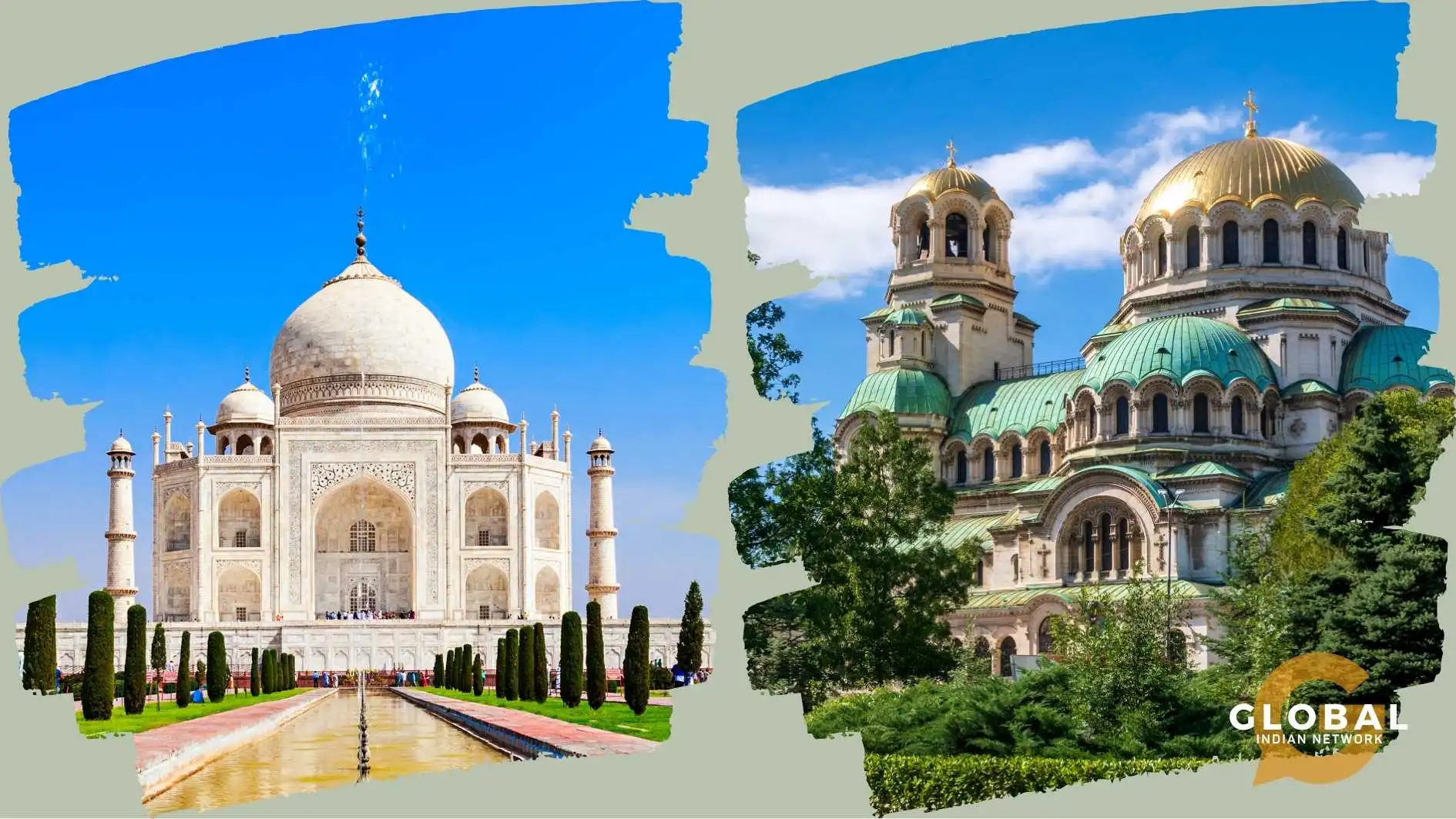The unseen threads of heritage between India and Bulgaria are not widely known.
Across continents and centuries, Bulgaria and India are bound by more than just geography; their connection is woven through language, art, spirituality, and stories that echo shared human experiences. From ancient Indo-European roots, vibrant literary dialogues sprouted: timeless Indian epics resonate in Bulgarian hearts, while Bulgaria’s poetic voices find new life in Indian languages. This cultural symphony extends beyond words; colorful dance forms, soulful music, and holistic wellness traditions like yoga and Ayurveda nurture an ongoing exchange of ideas and values.
Indian cultural organizations in Bulgaria serve as vibrant hubs where this heritage lives and breathes, creating spaces of friendship and understanding. Together, these creative bridges form a tapestry of mutual admiration and trust, laying fertile ground for lasting partnerships. In a world longing for connection, the Bulgaria-India cultural dialogue stands as a testament to how shared heritage can illuminate paths to collaboration, growth, and unity.
Table of Contents
Mutual Literary Admiration and Translations
Bulgaria and India, though separated by geography, are linked by a multitude of cultural, historical, and linguistic connections that date back centuries. The shared Indo-European heritage extends beyond scholarly interest; it lays the foundation for trust, kinship, and spiritual understanding—essential pillars for vibrant business partnerships and lasting personal connections.
The bridge of culture between Bulgaria and India is perhaps most elegantly manifested in their mutual admiration for each other’s literature. Indian classics such as the ‘Ramayana’, ‘Mahabharata’, ‘Vedas’, ‘Upanishads’, ‘Bhagavad Gita’, and ‘Panchatantra’ have been meticulously translated into Bulgarian, enriching local literary horizons and fostering a deep appreciation for India’s philosophical and poetic traditions. Modern Indian authors, such as Prem Chand, Mulk Raj Anand, and Amrita Pritam, have also found a resonance with Bulgarian readers, underscoring the appeal of Indian narratives in Eastern Europe.
Conversely, Bulgaria’s most significant poets—Hristo Botev, Hristo Smyrensky, and Nikola Vaptsarov—have been introduced to Indian literature enthusiasts through translations into Hindi, Bengali, and other Indian languages. This mutual literary exchange is cultivated by dedicated academic departments, such as the Indology department at Sofia University, which has translated the principal Upanishads from Sanskrit to Bulgarian.
Over the years, prestigious events—such as writers’ roundtables, literary festivals, and cultural delegations—have further fueled this enthusiasm. During the 1980s, the ‘Days of Indian Culture’ in Bulgaria and the ‘Days of Bulgarian Culture’ in India showcased not just books but also exhibitions, film weeks, and scholarly dialogue, demonstrating the comprehensive scope of their cultural engagement.

Art: Visual and Performing Bridges
Artistic collaborations serve as potent mediators in this relationship. Exhibitions like “Kalpana,” featuring works by renowned Indian artists, have been held in Sofia, supported by both the Embassy of India and the Indian Council for Cultural Relations (ICCR). Similarly, Indian music, dance, and film regularly feature at festivals across Bulgaria, introducing audiences to both classical and modern forms—from Manipuri dance performances to Bollywood cinema.
Importantly, Bulgarian artists and thinkers have also drawn inspiration from India. The famous Bulgarian painter Boris Georgiev was deeply influenced by Mahatma Gandhi, and Rabindranath Tagore’s 1926 visit to Bulgaria left a lasting legacy in the local imagination. Such exchanges show that admiration is not merely a matter of translation, but of genuine ‘intellectual and spiritual influence.’
Spiritual Practices and Living Heritage
A significant aspect of the cultural bridge is the popularity of yoga and Ayurveda in Bulgaria. Dozens of institutions offer classes in yoga, meditation, and Ayurveda, with the International Day of Yoga celebrated in over 40 cities and towns across Bulgaria. This wide embrace of Indian spiritual traditions exemplifies a lived connection—a tangible bridge between the two societies’ worldviews and wellness philosophies.
Cultural Organizations: Anchoring Exchange
A robust network of Indian cultural organizations in Bulgaria sustains this ongoing exchange. The ‘East-West Indological Foundation’ promotes language classes, funnels support for Indian music and dance, and assists in translating Indian literary works. ‘Friends of India Club’ brings together artists, diplomats, and lovers of Indian culture to produce the annual “Svetilnik” magazine. Other active groups include Devam Foundation and Namaste Bulgaria, all of which collaborate closely with the Embassy of India to arrange festivals, exhibitions, and educational events.
On the community front, the Association “INDIA” unites the Indian diaspora in Bulgaria, organizing ‘Holi,’ ‘Diwali,’ and other major festivals, as well as social and educational programming. These organizations foster ongoing dialogue and integration between the two societies, functioning as ‘living bridges’—as highlighted by President Ram Nath Kovind during his 2018 visit, where he underscored the vibrant and diverse Indian community in Bulgaria.
A Shared Linguistic and Historical Heritage
Underlying these vibrant present-day connections is an ancient ‘Indo-European linguistic heritage,’ a factor that subtly nurtures trust and facilitates partnership. The similar grammatical roots and shared mythological motifs provide fertile ground for interpersonal and cross-sectoral understanding—whether in education, business, or public service.
Cultural Exchange for Future Integration and Partnerships
Programs of cultural exchange—university partnerships, artist residencies, language courses, and bilateral festivals—play a pivotal role in enabling ‘entrepreneurs, students, and professionals’ to integrate, adapt, and thrive in one another’s societies. The legacy of past collaborative ventures, from educational exchanges to joint art projects, underscores the potential of new initiatives in education, business networking, and innovation.
Enduring Trust and Expanding Horizons
Bulgaria and India’s engagement is therefore not merely ceremonial. It is rooted in an organic and profound respect for each other’s culture, sustained by joint translation projects, spiritual exchange, community organizations, and academic initiatives. These bridges—literary, artistic, and spiritual—carry the promise of ‘greater mutual understanding, collaborative economic ventures,’ and resilient long-term partnerships. By investing in joint educational, arts, and networking endeavors, both nations stand to deepen their connections and create lasting prosperity underpinned by cultural respect and shared heritage.

Conclusion
The cultural connection between Bulgaria and India is a living dialogue, vibrant and evolving, rooted in ancient ties yet blossoming with modern creativity. As literature, art, and spirituality intertwine, they forge a unique bond that transcends borders and time. The shared passion for each other’s stories, the embrace of yoga and Ayurveda, and the thriving Indian cultural organizations in Bulgaria exemplify a friendship grounded in respect and curiosity. This relationship is more than heritage. It’s an invitation—to collaborate, educate, and innovate together.
As these two nations continue to walk hand in hand, their cultural bridges not only celebrate what unites them but also open pathways to shared prosperity, understanding, and peace, inspiring future generations. Through this harmonious exchange, Bulgaria and India illuminate the power of culture to connect hearts and shape destinies.









